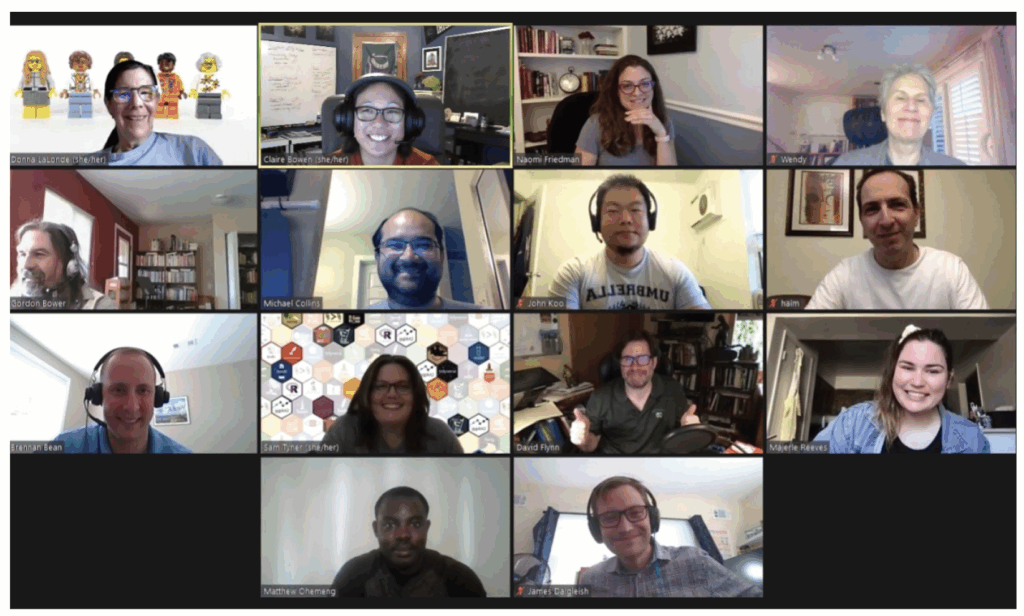Beyond Big Data: Shaping the Future—SDSS 2021
Wendy Martinez, Claire Bowen, and Donna LaLonde
Colleagues, thought-provoking talks, and Star Trek trivia all contributed to the success of the Symposium on Data Science and Statistics (SDSS) 2021, which took place virtually June 2–4.
Before deciding to go virtual due to COVID-19, SDSS presenters and participants were learning the words to “Meet Me in St. Louis” and anticipating trips to the Gateway Arch. However, when it was clear the symposium wouldn’t be held in person, SDSS 2020 Program Chair Dave Hunter shared his experiences and lessons learned last year to improve this year’s virtual event.
In an effort to further refine the referee process, authors submitted two-page extended abstracts, which were reviewed by program committee members. The committee accepted 54 out of the nearly 100 submissions for refereed talks. There were also 133 submissions for lightning talks, with 108 accepted onto the program. Furthermore, the committee formalized the roles of program chair-elect and past chair to ensure continuity from year to year.
Safiya Noble, Stephen T. Ziliak, and Wendy Martinez opened the symposium with a plenary session titled “Equitable and Inclusive Data and Technology.” This session set the tone for the conference by reminding everyone of their responsibility to “shape the future” through the ethical practice of data science and statistics.
Continuing this theme, Lily Wang, Sara Del Valle, and Juan Lavista Ferres presented in the second plenary panel, “Impacts of COVID-19.” They gave their perspectives on the contributions of statisticians and data scientists, lessons learned, and implications for future research.
The closing plenary session offered the opportunity for Nancy Potok, who is co-chairing the ASA’s Census Quality Indicators Task Force, D’Vera Cohn from the Pew Research Center, and Hansi Lo Wang from NPR to do a deep dive into the 2020 Census.
New this year was a late-breaking session, “Recent Trends in High-Dimensional Statistics,” organized by Alex Shkolnik of the University of California at Santa Barbara. There was also the opportunity to remember the significant contributions of Jim Harner, who passed away in 2020. Harner was a program co-chair for the inaugural SDSS held in 2018 and responsible for the continued success of the conference. Also new was a special session honoring the data science achievements of Bill Cleveland and John Tukey, many of which occurred long before the phrase ‘data scientist’ became popular.
SDSS 2021 hosted several networking events. The conference started off with a mixer; later, there was a mentoring session, where attendees could ask questions of mentors from various sectors. The conference ended with Trivia Night, which took on a Star Trek theme. All trivia participants were winners and received a prize.
Although many longed to meet in person, there were advantages to having a virtual conference, including making new connections with fellow data scientists and statisticians from as far away as Brazil and Germany and being able to watch recordings of sessions on demand until September.
Hunter and Helen Zhang arranged for a special issue of STAT that will showcase presentations made at SDSS 2021. It is expected to be published by the end of the year. View the special issue of STAT for SDSS 2020. SDSS 2022 will take place in Pittsburgh, Pennsylvania, June 7–10. Claire Bowen and Emily Dodwell are leading the SDSS 2022 program committee.


















